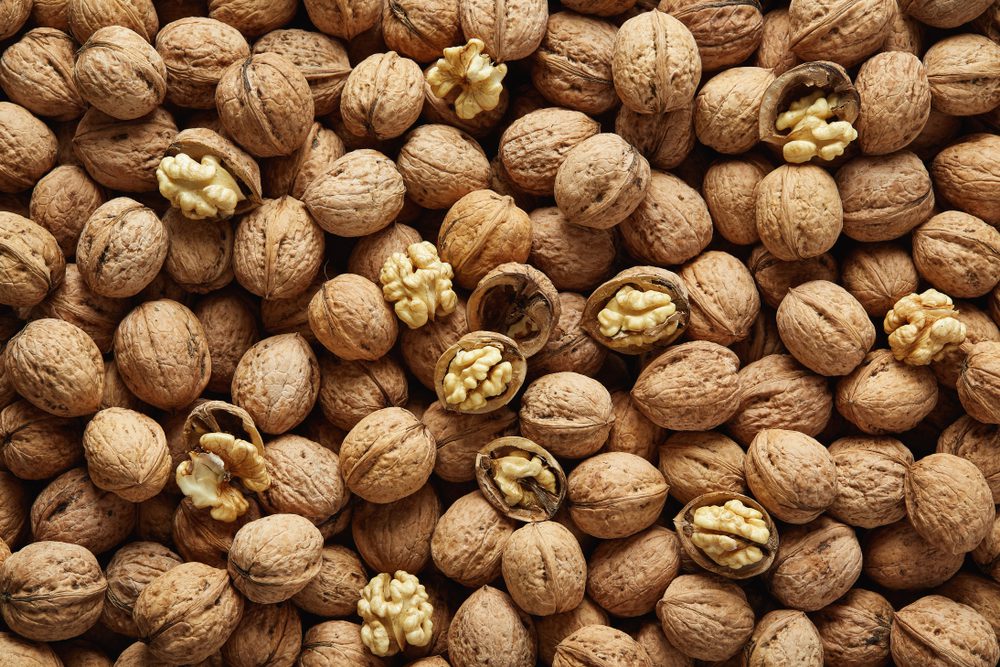Last week, I got to spend an hour touring one of the most dynamic and regenerative organic walnut farms in California. It’s in Winters, California, just outside Sacramento.
I was in the area for a meeting at the University of California, Davis, and my dear friend Craig McNamara invited me to come by to see his organic walnut ranch and Center for Land-Based Learning, his pet project and legacy.
I literally had 45 minutes to spend with him, as I had a flight to catch that evening. So as soon as I arrived at the ranch, we jumped into an all-electric ATV and did the fastest tour I’ve ever had of a farm.
If the name McNamara sounds familiar to you, it’s because Craig is the son of the late Robert S. McNamara, the eighth U.S. secretary of defense, who served from 1961 to 1968 under Presidents John F. Kennedy and Lyndon B. Johnson. He played a major role in escalating the United States’ involvement in the Vietnam War.
I had recently learned of that personal connection, so in the most diplomatic way I could, I asked Craig about his dad (whose name is inextricably associated with that war) and how Craig ended up as a farmer in Winters, since he grew up in Washington, D.C. You can read more about Craig and his dad in this article.
Craig shared with me that due to his father’s connection to the war and the personal burden Craig felt, he dropped out of Stanford University in protest and fled the country. He rode a motorcycle 6,000 miles to Colombia, then hitchhiked another 6,000 miles to Tierra del Fuego (the southernmost point on the continent). He ended up living on the land of peasant farmers in Mexico, Ecuador and Chile, and worked side by side with them, growing food. Craig realized working on the land was helping him heal. He returned to UC Davis and earned a degree in Plant and Soil Science. He met the love of his life and now wife, Julie, and they bought a small farm in Winters.
When they bought the farm, the best part was a cute house, which they still live in. But the ground was in terrible condition. During his time working with farmers in South America, he had learned to cultivate the land organically and applied that to his new business. He eventually created three enterprises.
First is Sierra Orchards, at 450 acres, producing mostly organic walnuts and olives for olive oil.
Second is the Center for Land-Based Learning, Craig’s passion project. Its mission is to inspire, educate and cultivate future generations of farmers, agricultural leaders and natural resources stewards. The center trains more than 2,000 people annually on sustainable farming practices, so they can go back to their communities and farm.
And third is the creation of the California Farm Academy (CFA) that trains 24 beginners each year, preparing them to be the next generation of California farmers. Graduates of CFA share incubator plots on 15 acres of Craig’s land, selling their produce to restaurants across the Bay Area and Sacramento. They are also part of the Farm to Table movement and have started many urban farms.

After the tour, Craig took me into his small office to give me a couple of bottles of his special olive oil. I spotted a photo of Craig and his dad, Secretary McNamara. With permission, I snapped this photo.

While driving to the Sacramento airport, weaving through the countryside on a one-lane road, I just couldn’t turn on the radio. I had too many thoughts going through my mind about the burdens Craig carried regarding his father’s legacy. And how Craig was able to move past those to become a farmer and entrepreneur. Interestingly, he leveraged his own leadership skills to get appointed to the California State Board of Food and Agriculture (he served for 17 years, the last seven as president). That means he was a key advisor to California’s governor and secretary of agriculture.
My final thought as I arrived at the airport was of Putah Creek flowing through his farm. Craig and I, in his ATV, roughed it through a few fields, so that he could show me the work he and his crew had done to restore Putah Creek. It’s a tributary of the Sacramento River. The 85-mile creek has its headwaters in the Mayacamas Mountains, a part of the Coast Ranges, and flows east through two dams, including a section on Craig’s farm. He showed me how, over many years, they were able to install large boulders and create an aerated section of the creek, which is now home to thousands of salmon that swim upstream each season.
The circle of life is so amazing to me. In 45 minutes, Craig shared the most intimate details of his life with me, and how he finally healed his wounds from memories of his father’s life by becoming a farmer. An organic farmer and teacher. And yet, part of Craig’s legacy will be that he served in our own state government, as a leader and influencer for generations to come.
It’s interesting how even when we resist being like our parents and want to follow our own path, we eventually find that our parents were perfect for us. It was our parents’ choices and actions that helped make us who we are today.
Karen






